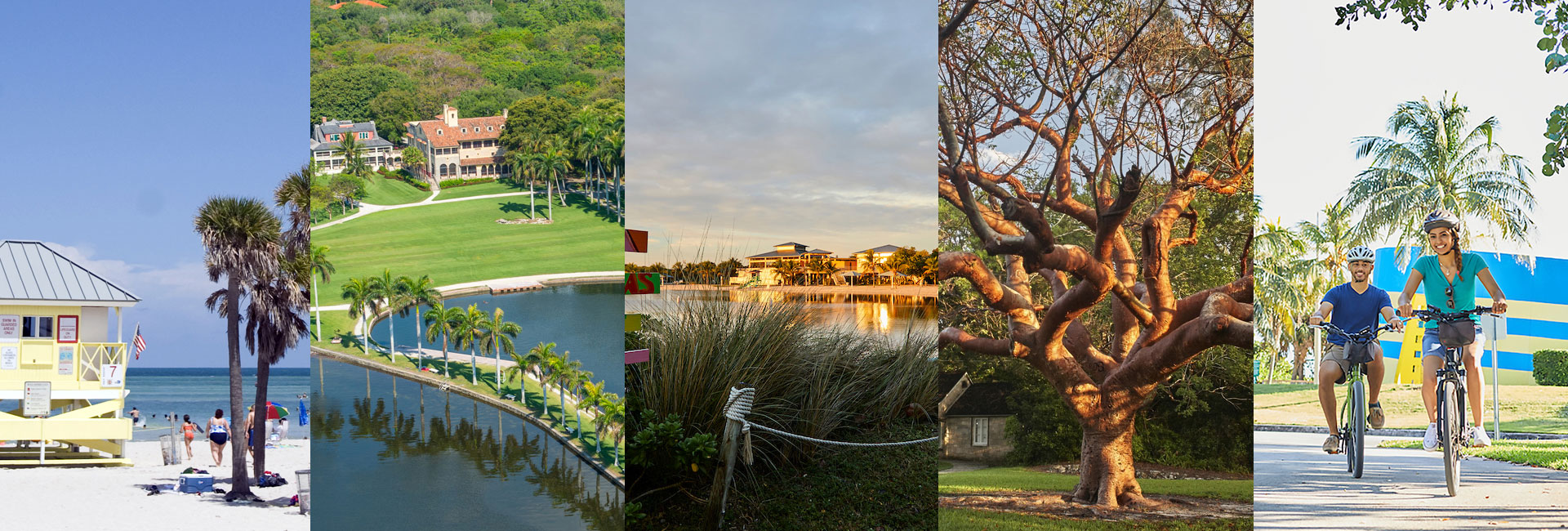Natural & Cultural Heritage Places
While many people are not getting enough nature, many natural lands are not getting enough appreciation. Land conservation programs do help the environment, but there is a perception that their only function is an ecological one. This is unfortunate given that more and more research points to the positive effects that open lands have on the well-being of people. Psychologically, just viewing open space reduces stress levels.
Direct interaction with nature, such as on an eco-tour or a casual walk through a protected area, yields many more benefits, especially in the development of children. Conserving lands can truly have dual benefits: for nature and for people, and reinforcing the relationship between them.
Environmental Zones Mission and Vision
An Eco-zone is a group of protected natural areas that are connected through greenways, blueways and biotic corridors that provide the community with experience that inspire, educate and foster stewardship of the natural environment of South Florida. Within an Eco-zone there shall be a series of connected Eco-hubs that provide resource-based education and recreation.
The Vision for Miami-Dade is a system of Environmental "Zones" (clusters of environmentally endangered lands) that provide a variety of environmental education activities and programs; elevate the public's appreciate and understanding of the County's natural ecosystems; demonstrate the proper management of natural resources; engage the surrounding neighborhoods in the use and management of the sites; and link environmental sites with other elements of the open space system, through streets, greenways, trails and blueways.
The concept promotes access and appreciation with responsible environmental stewardship. Over time, many of the existing EEL sites can be clustered into critical masses by acquiring neighboring lands. The vision for the environmental zones does not propose a radical amount of acquisition and physical change; instead, it is much more of a change in branding, marketing, and management, in short, repackaging what natural and cultural areas are and getting the word out about what makes it unique.
Environmental Zones Characteristics
A high quality Environmental Zones would emphasize different priorities: those where resource conservation is the priority, and those where resource conservation education is the priority. The first type would have very limited public access; the second would serve as areas for interpretive installments, nature centers and other visitor facilities, and have opportunities for passive recreation such as hiking or bird watching.
In planning for all types of zones it is important that natural area functions should not be substantially compromised by recreation objectives. All construction should meet green standards, and buildings should compliment the natural landscape and use compatible materials. Areas that are more environmentally sensitive can be kept off-limits or have minimal public access, whereas adjacent areas with less sensitivity can support educational activities and greater traffic.
The hands-on educational component is crucial, as is interpreting the ecological heritage of the area to help garner support for conservation practices. Environmental areas are great opportunities to provide passive, resource-based recreation that overly programmed neighborhood and community parks may lack. A secondary benefit of conserving environmental lands and providing access is the possibility of ecotourism, a potential source of revenue.
Environmental Hub Characteristics
- Connected to an eco-zone that includes property suitable for development of recreation and educational opportunities.
- Balances recreational and educational access with conservation through the following conservation, design and programming criteria.
- Restores and protects the natural environment and function to connect all components of existing ecosystems.
- Designed to reflect the natural character of the site; all infrastructure and land conservation methods must be developed and maintained with the principles of sustainability and work harmoniously with the environment.
- Programmed to include a range of educational, recreational and volunteer programs to inspire, educate and foster stewardship of South Florida communities.

Parks, Recreation and Open Spaces
Maria I. Nardi
Hickman Building
275 NW 2nd Street,
Miami, FL 33128
305-755-7800

